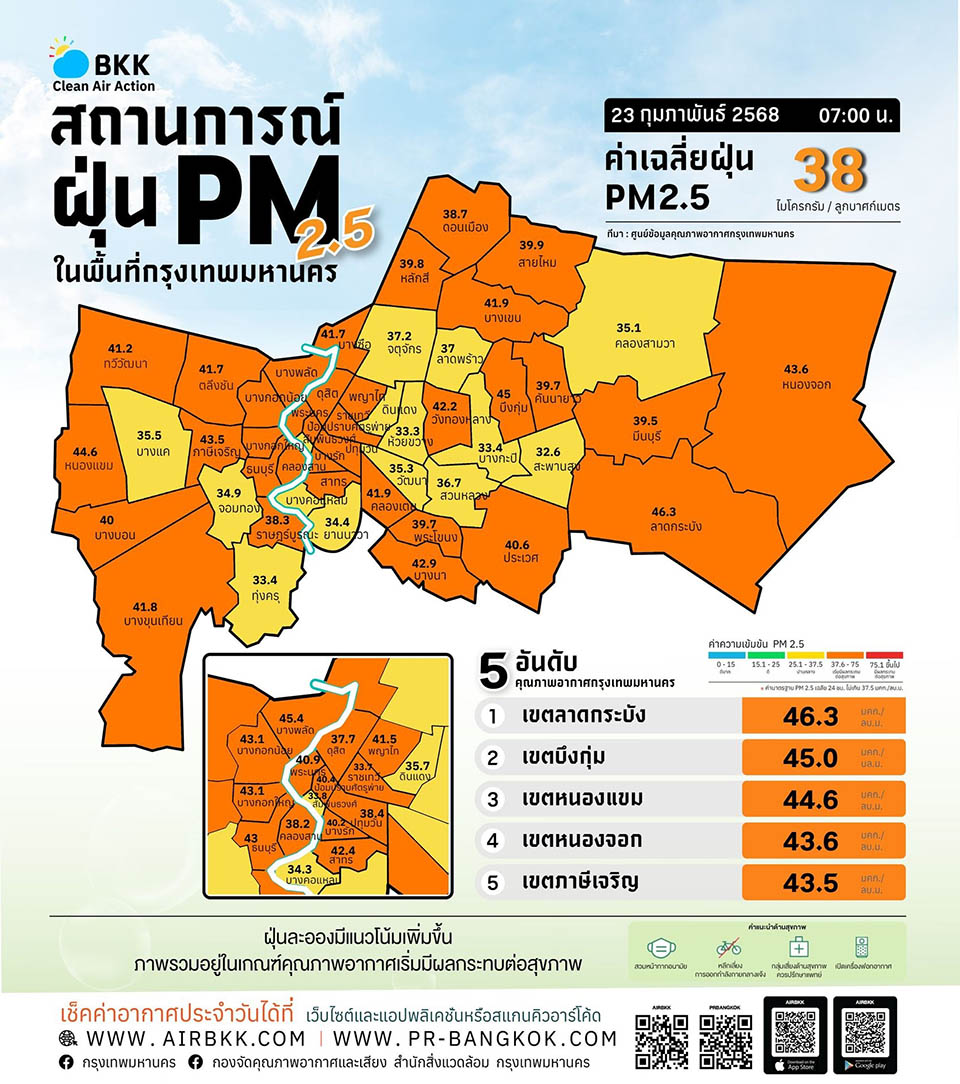
BANGKOK, Thailand –– The Bangkok Air Quality Information Center has reported increasing PM2.5 levels, with measurements between 29.9 – 46.7 µg/m³ from 5:00 AM to 7:00 AM. The city’s average PM2.5 concentration is 37.9 µg/m³, exceeding the safety standard of 37.5 µg/m³, placing air quality in the orange zone, which indicates potential health effects.
At 7:00 AM, February 23, the PM2.5 levels ranged from 30.4 – 45.3 µg/m³, showing an increasing trend compared to the same time on Saturday. A total of 35 areas in Bangkok have been classified as exceeding safe air quality levels.
Health Recommendations
General Public:
Wear PM2.5 protective masks when going outside.
Limit strenuous outdoor activities and exercise.
Watch for symptoms such as coughing, breathing difficulties, or eye irritation.
At-Risk Groups (Children, Elderly, Pregnant Women, and Those with Respiratory Issues):
Always wear protective masks outdoors.
Avoid outdoor activities and follow medical advice.
Seek medical attention if experiencing abnormal symptoms.
Weather and Pollution Forecast
On February 23, poor air circulation and a stable lower atmosphere have contributed to increased pollution levels. However, from February 24-25, air circulation is expected to improve, with potential rainfall helping to reduce PM2.5 concentrations temporarily. Pollution levels may rise again from February 26-28 due to poor ventilation.
Hotspot Detection in Bangkok
NASA’s satellite data has detected four heat hotspots in Bangkok on February 22, suggesting possible fire sources:
Nong Chok District (12:59 PM): Confirmed grass fire, now extinguished.
Khan Na Yao and Min Buri Districts (1:24 PM): Under investigation for possible fires.
Authorities urge residents to report pollution sources via Traffy Fondue and check air quality updates on:
AirBKK App
www.airbkk.com
www.pr-bangkok.com
Official Bangkok Metropolitan Administration (BMA) social media pages
Residents are advised to take necessary precautions to protect their health as air pollution levels continue to rise. (BMA)










